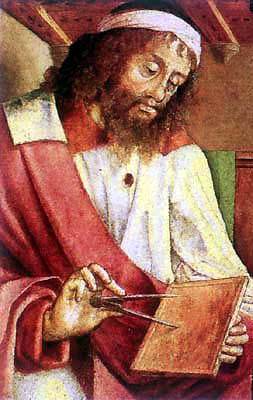Euclid
Euclid was a Greek mathematician who lived 325-365 B.C. in Hellenistic Alexandria. He was the father of geometry and wrote the Elements which is considered to be one of the most successful mathematics textbooks ever. It is a compilation of the available geometric proofs at the time. The book is a rigorous yet easily accessible geometric treatise that is essentially the foundation of mathematics, and astronomy relied on Euclid for many years. In his book is the proof for one of the most notable results, the Pythagorean theorem. Euclid's Elements focuses mainly on geometry but also has a small amount of number theory dealing with prime numbers and even perfect numbers.
Euclid's Elements form one of the most beautiful and influential works of science in the history of humankind. Its beauty lies in its logical development of geometry and other branches of mathematics. It has influenced all branches of science but none so much as mathematics and the exact sciences.
Other Works
Euclid wrote other works but not all are extant. Other extant works include Euclid's Optics and Data.
In poetry
The poet Edna St. Vincent Millay wrote a sonnet, "Euclid alone has looked on Beauty bare," an appreciation of the intrinsic beauty of mathematics.[1]
Vachel Lindsay's poem, Euclid, views him in a less reverential way:
Old Euclid drew a circle
On a sand-beach long ago.
He bounded and enclosed it
With angles thus and so.
His set of solemn greybeards
Nodded and argued much
Of arc and of circumference,
Diameter and such.
A silent child stood by them
From morning until noon
Because they drew such charming
Round pictures of the moon.[2]
References
- ↑ Euclid alone has looked on Beauty bare, online text
- ↑ Lindsay, Vachel, The Congo and other versesonline text
External links
- Euclid's elements, All thirteen books, with interactive diagrams using Java.
- Euclid's elements, All thirteen books, in Spanish and Catalan.
- The Origins of Greek Mathematics
- A Thumbnail History of the Philosophy of Mathematics
